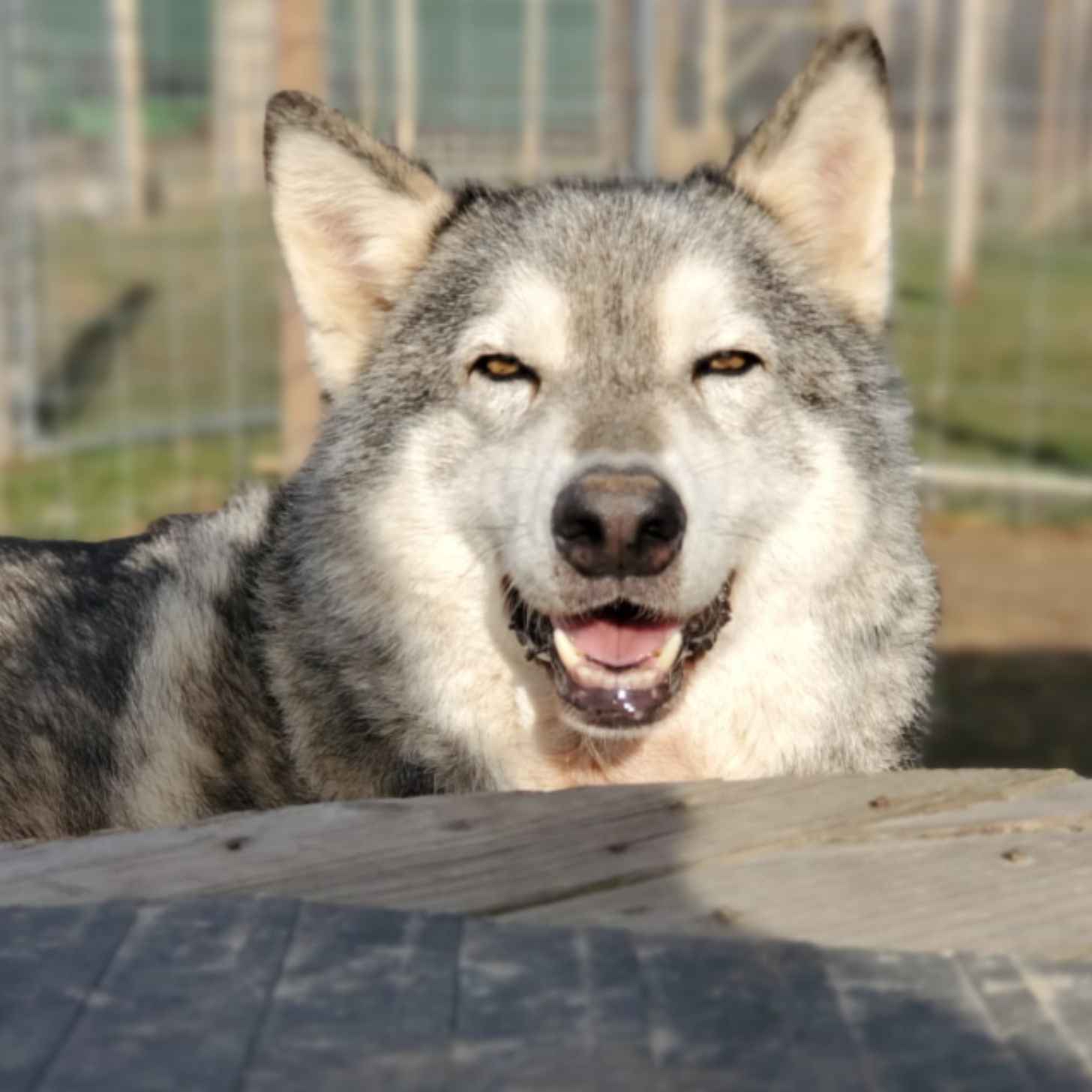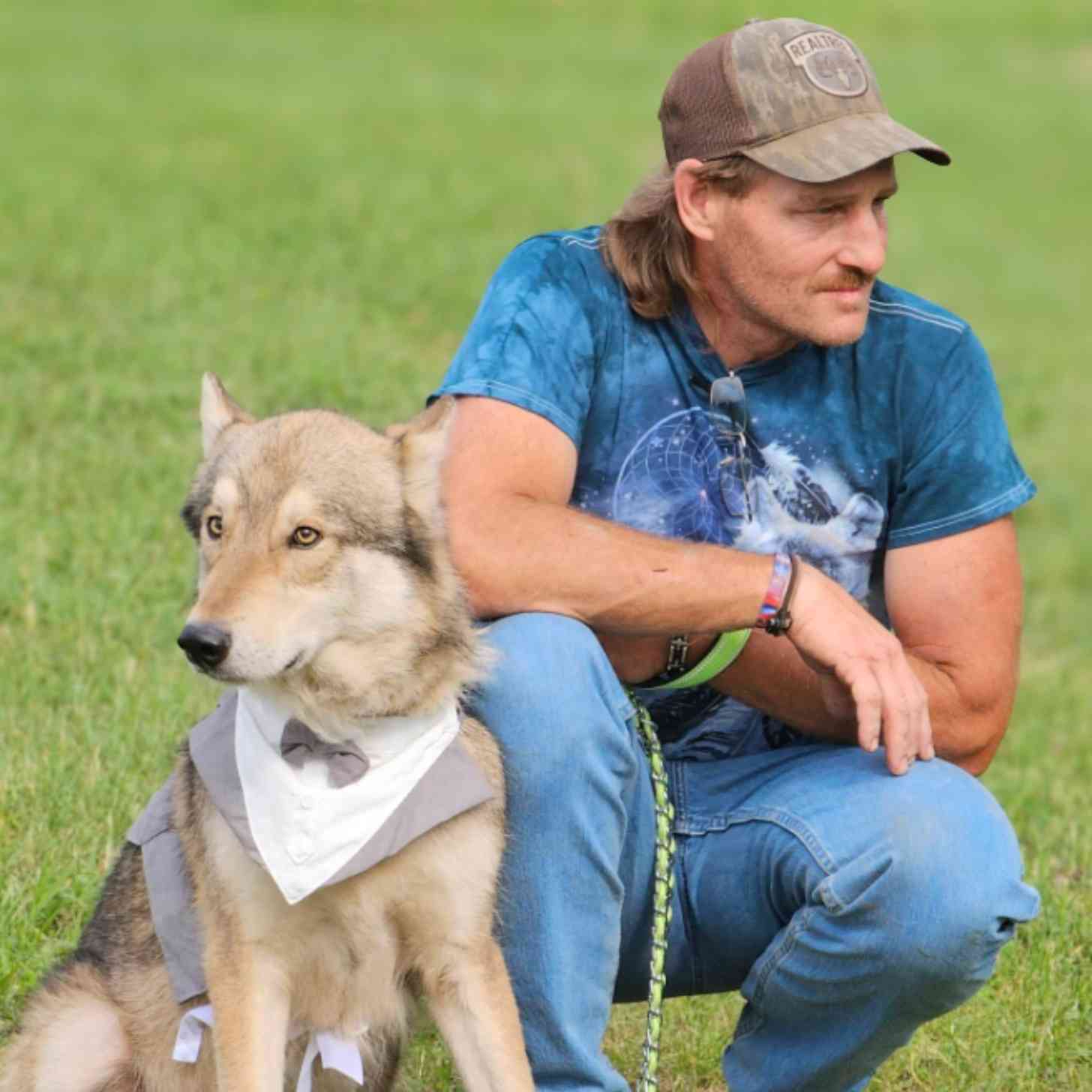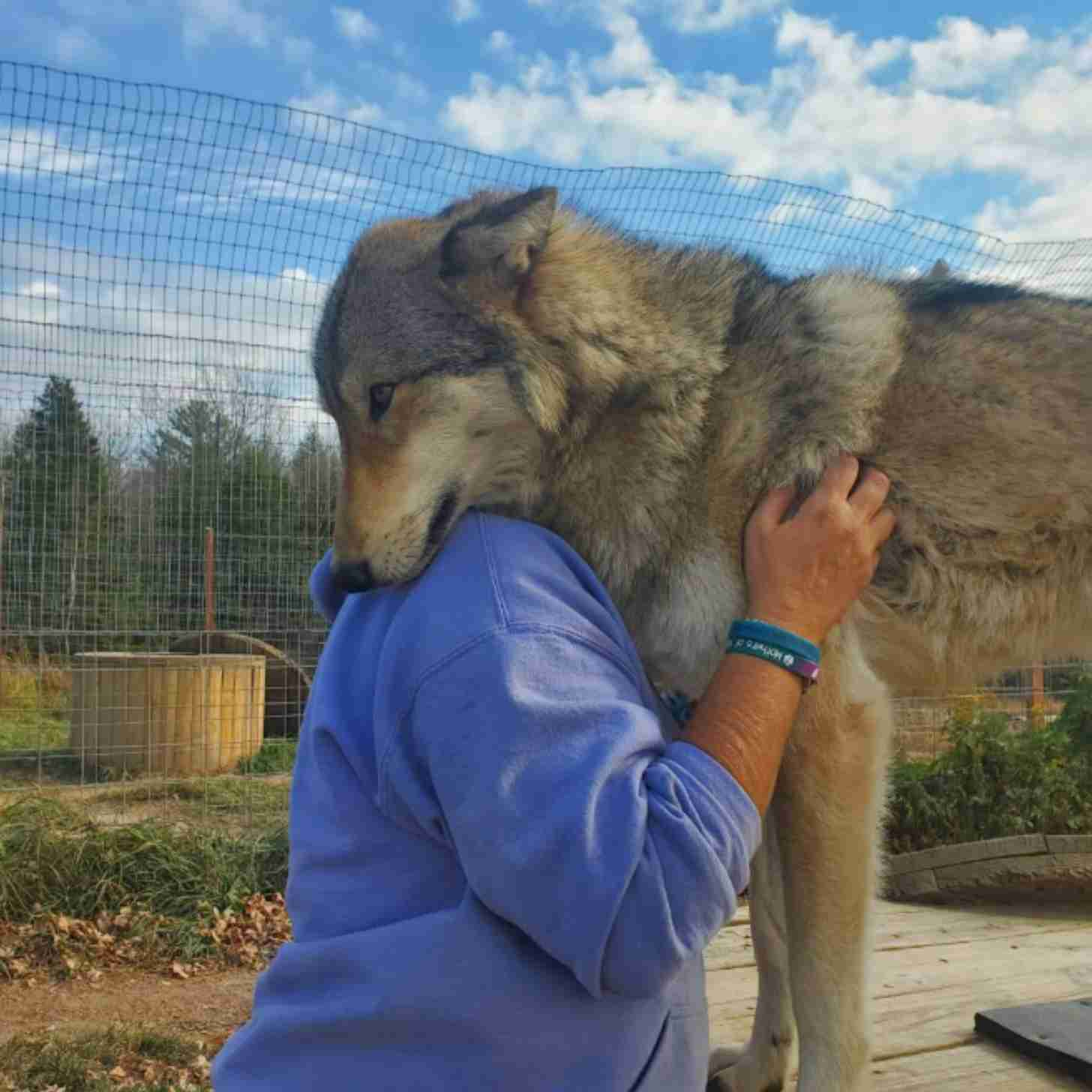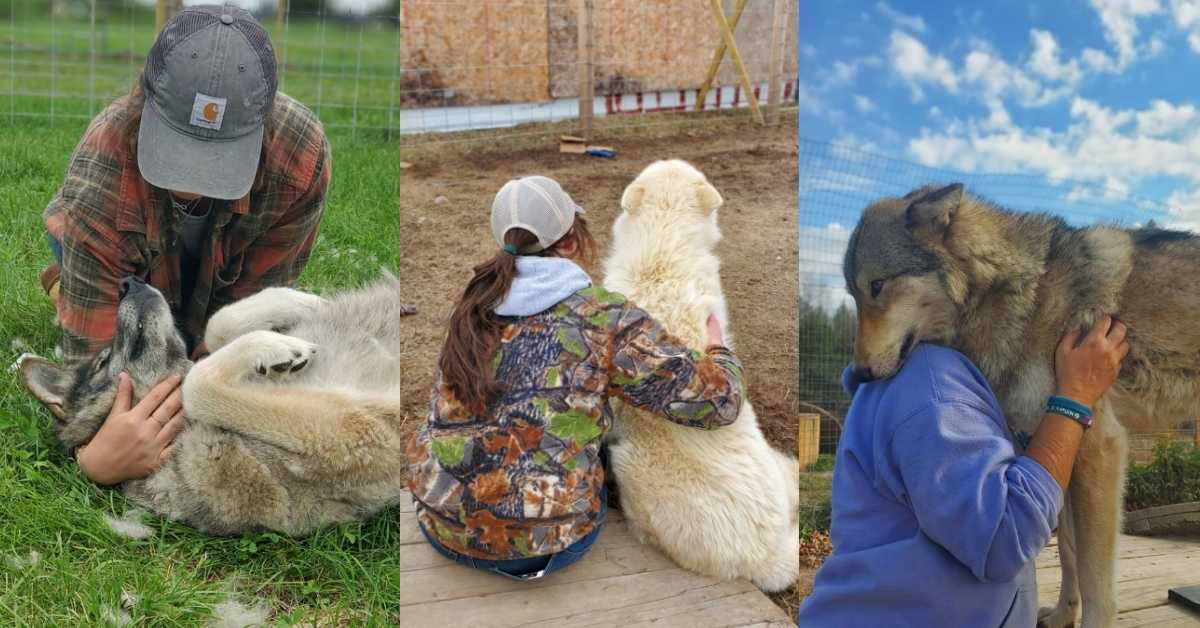Some dogs, such as huskies, malamutes, and German shepherds, resemble their wolfish ancestors more closely than their corgi counterparts.
But wolfdogs are another animal entirely. Due to crossbreeding that largely dates back to the 1960s and 70s, they have a wolf ancestry that is much more recent.
“Typically, to be considered a wolfdog, an animal will have a minimum of 20% wolf heritage, and can have up to the legal maximum of 98% wolf heritage,” The Texas Wolfdog Project, an animal sanctuary based in Montgomery, Texas, explains on its website.
According to the Texas Wolfdog Project, there’s a vast range of behavioral traits that wolfdogs exhibit, which fluctuate based on the “content” of their wolf genes.
But overall, they tend to require more care than the average house pet.
The sanctuary is just one of many across the country that rescue abused and abandoned wolfdogs and ensure that they’re given proper care.
In fact, 1,200 miles north of the Texas Wolfdog Project, in Gleason, Wisconsin, another refuge has found a way to help wolfdogs thrive — all while helping veterans, too.
It’s through an innovative program called Apex Angels and Warriors.

“We bring in veterans who have PTSD or any other sort of mental health issues, and we are a non-traditional type of therapy for them,” founder Michelle Last told WJFW, a Wisconsin news outlet.
Since 2022, the sanctuary — which doubles as a nonprofit — has been serving local veterans by organizing playdates with their “pack,” which now consists of more than 30 wolfdogs.
Last’s mother and father both served in the Vietnam War. She opened up about losing her father to suicide after his battle with post-traumatic stress disorder.
“I made it my mission to help veterans,” Last said. “I didn’t want people to end up like my dad with no other option.”
One of those veterans is Jeff Yunk, an Army veteran who served two tours in Afghanistan.
“When I first got back, I had a hard time readjusting, went down some bad roads that I shouldn’t have been down,” Yunk explained.

Yunk recalls meeting Last at a veterans coffee event, when she came in to promote her first-of-its-kind program.
At first, he was wary of the idea of spending time with wolfdogs. Then he met them, and he felt himself change for the better.
“The wolfdogs and veterans have both been through trauma,” reads a mission statement on the nonprofit’s Facebook page. “And they help heal each other with patience, understanding, trust, and love.”
Yunk’s journey is a testament to that.
"When these wolf dogs click to someone, that's their go-to person. They will scent roll all over you. They will, they just go nuts for that one person," he said.
“People will say sometimes we’re crazy or sometimes we’re unpredictable or this and that,” said Yunk, who now volunteers at the sanctuary.
“Sit down with a veteran,” Yunk urged. “We’re not that bad, and neither are these dogs."

Header images via Apex Angels & Warriors Veteran / Wolfdog Healing and Education center



